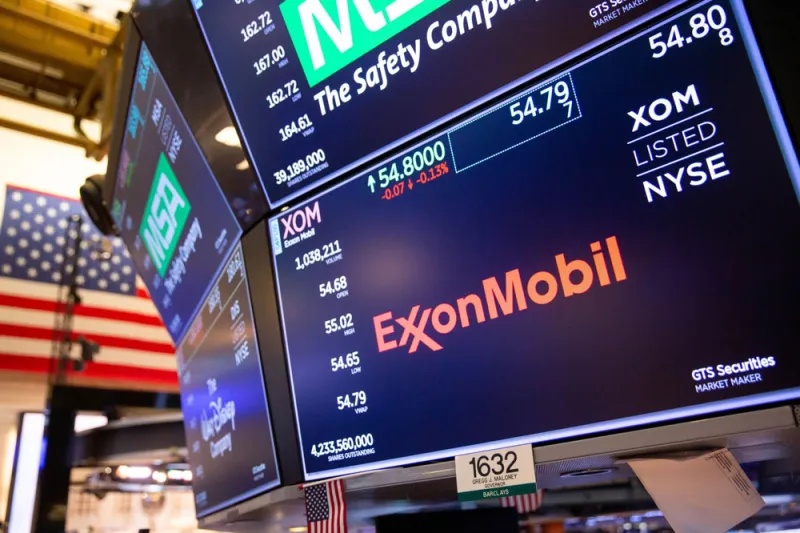Jeff Ubben, the activist hedge fund manager who founded Inclusive Capital Partners a little more than a year ago, is calling for the Securities and Exchange Commission to make companies include a price for carbon as part of their climate-related ESG disclosures.
Ubben, who is also a board member of ExxonMobil, made his comments in a September 8 letter to the SEC. It was one of thousands sent since SEC Commissioner Allison Herren Lee earlier this year asked for public comments regarding upgrades to the SEC’s climate change disclosures.
“[Inclusive Capital] believes that — even in the absence of Congressional establishment of a national price for carbon — the most impactful role for the SEC would be to require all U.S.-listed companies to report the price of carbon they assume in their strategic planning, from decision-making to risk assessment and capital allocation,” he said in the 14-page missive.
Carbon pricing “captures the external costs of greenhouse gas (GHG) emissions — the costs of emissions that the public pays for, such as damage to crops, health care costs from heat waves and droughts, and loss of property from flooding and sea level rise — and ties them to their sources through a price, usually in the form of a price on the carbon dioxide (CO2) emitted,” according to the World Bank.
Ubben told Institutional Investor in an e-mail that he thinks SEC action on carbon pricing will propel the federal government to implement a carbon tax or a cap and trade plan.
“[The] U.S. is the largest carbon emitter with no national plan addressing GHG [greenhouse gas],” Ubben wrote II.
“This is a failure and does not allow us to go to COP26 [the UN Climate Change Conference] with any sort of moral imperative,” he continued. “A carbon tax or a cap and trade plan like in [California] and in the EU will stimulate the carbon abatement economy.”
“A carbon tax can happen more quickly,” he added.
Ubben also suggested that the carbon tax be sold to the public as a “carbon fee/dividend plan, [with] up to $2K going to lower income families.”
“We believe if [the] SEC requires carbon price disclosure in company investment decisions, it would add fuel to the fire for carbon tax/fee/dividend legislation. This disclosure alone stimulates a very real conversation with investors, and puts the explicit price of carbon into the mainstream. In this way, we believe SEC regulatory action can impact legislation,” the email continued.
Most of the comment letters to the SEC favor heightened climate-related disclosures, but none appear to be as specific on carbon pricing as the one from Ubben. The founder of activist hedge fund ValueAct Capital in 2000 in San Francisco, he resigned last year to focus on impact investing at his new firm. He is also an investor in the controversial hydrogen and electric truck maker, Nikola.
According to Ubben, the U.S. Congress has indicated little interest in implementing a carbon pricing plan. But he wrote in the letter to the SEC that “climate related disclosure requirements by the SEC that include the potential for a price on carbon can both hasten the adoption of carbon pricing by Congress and prepare the markets for its formal introduction.”
In the letter, Ubben noted that 73 countries already have adopted some type of carbon pricing, “and it is reasonable to expect it to become universally adopted as global leaders become serious about commitments to net zero GHG by 2050.”
He also called for the SEC to establish “well designed mandatory climate related disclosures for both companies and investment managers that are timely, standardized, comparable, efficient and reliable.”
The SEC’s objective, he said, should be to help managers and investors understand the climate risks and opportunities of a company’s transformation to clean energy.
“Government policies that create subsidies for clean energy and place a true cost on carbon are the only effective ways that the full power of the capital markets will be unleashed toward the deployment of the investments that are needed to stop the planet from climate devastation,” he wrote to the SEC.
The letter noted that ESG-managed financial assets are on track to grow more than $53 trillion by 2025, according to Bloomberg Intelligence.
“It is because of this furious pace of investor demand that it is incumbent upon the SEC to protect against market-based distortions that could lead to a ‘Minsky Moment’ for the markets and derail the good faith intentions of investors to use their capital to mitigate climate-related damage.”
The term “Minsky Moment,” named after economist Herman Minsky, refers to a sudden collapse of asset values that signals the end of a market cycle.
Not all the letters to the SEC were supportive of more regulation in this area — an indication that Congressional action could face more pushback. Several commentators said that climate risk was not “material” and need not be disclosed by companies.
Missouri Attorney General Eric Schmitt, a Republican, wrote that the disclosure could “exceed the SEC’s authority and threatens to politicize corporate disclosures.”







